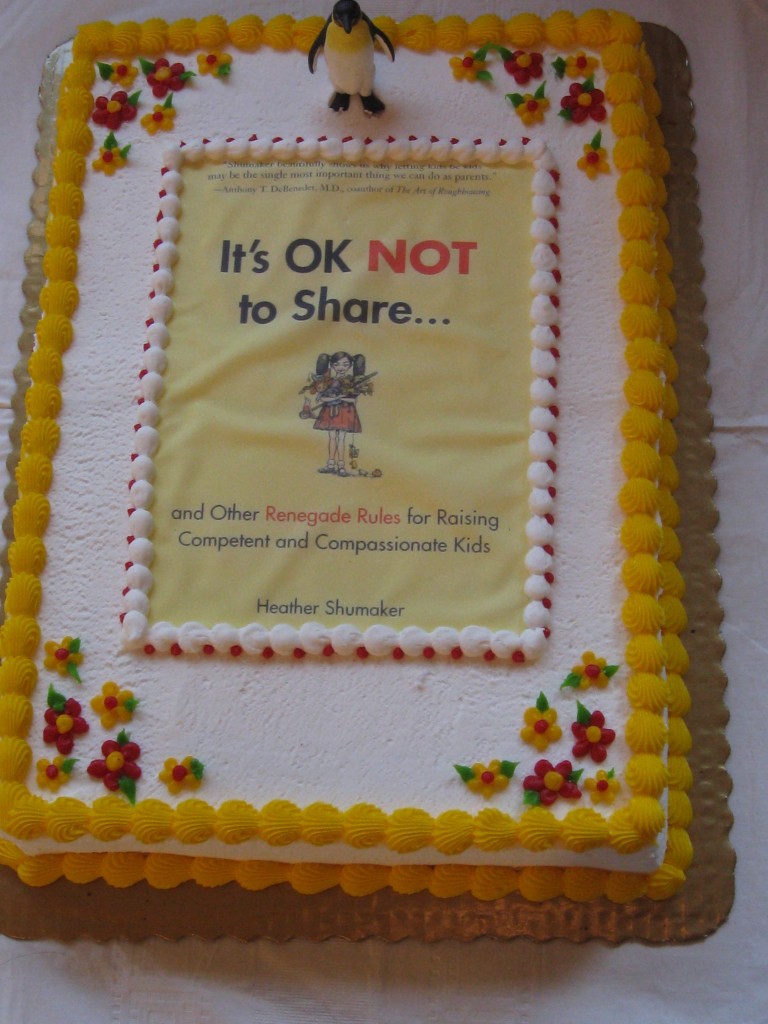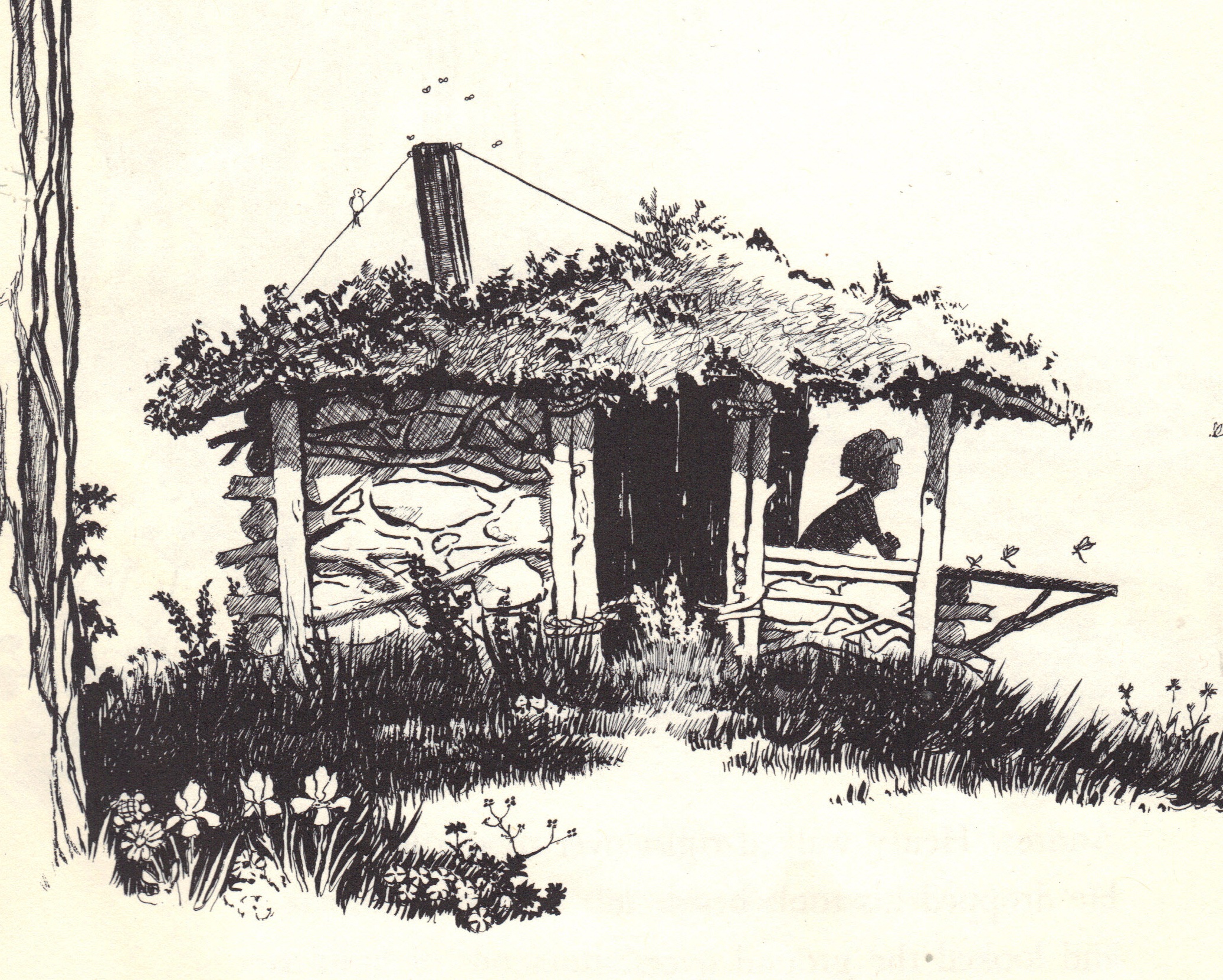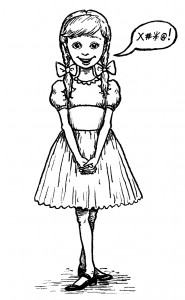A World of Books and Children
Search and enjoy 8 years of posts chock-filled with ideas from It’s OK Not to Share and beyond.
Did a friend of yours write a book? Do you simply adore a book you just read? Ready to show your support for the author but not sure how? Read on!
Readers and authors are partners in spreading good books to wider audiences. Sure, publishers are involved, but the true partnership is between authors and readers, and readers and new readers.
My book It's OK NOT To Share...And Other Renegade Rules came out last summer. I've met some beloved fans along the way, readers who've told me "this book was life changing!" or "I've underlined a third of it -- it's that good." You, the reader, have tremendous power if you love a book. Here're 10 ideas guaranteed to make any author smile:
1. Write a Review Write an Amazon review. Better yet, write both an Amazon and Goodreads review. Even readers who buy from local indie bookstores often research and discover new books from reader reviews online. This is an all-powerful way to share with like-minded readers around the world.
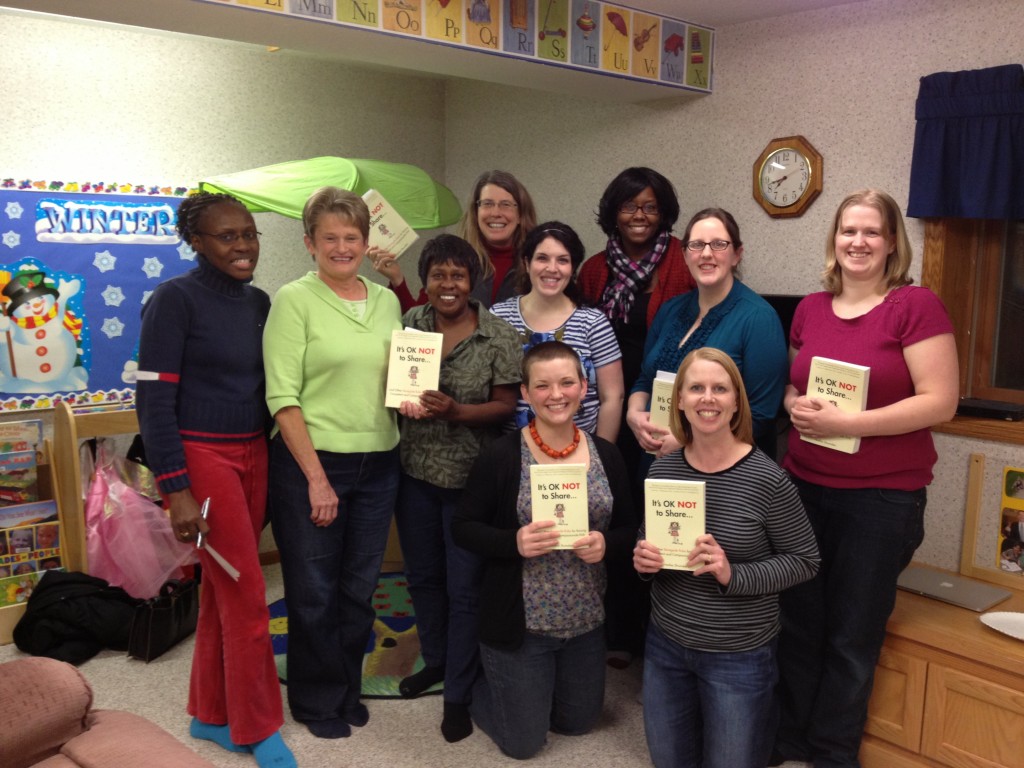
Why not invite the author to your next Book Club gathering? Author visits are rewarding and don't have to be limited to local authors - use Skype.
2. Choose it for your Book Club If you enjoyed it, or found it controversial, chances are your book club will, too. Books are happiest in the company of a stimulating book club discussion (and chocolate). Send a photo to the author. See if the author will Skype in and talk to your Club!
3. Share your enthusiasm online Mention the book on Facebook. Share the book cover. Tell your friends you're reading a great book. As a reader, I'm always curious about what good books are out there. My life is too short to read them all, so I'm grateful to get tips from friends I respect.
4. Share "what I'm reading" at your local bookstore Bookstores often collect readers' favorites lists or have a special shelf where Staff Picks and customer recommendations go. Bookstore owners love books and love to showcase books worth sharing. Bookstores are also frequent meeting places for book clubs who are on the look-out for their next book choice.
5. Ask your library to order it Librarians are powerhouses in the book opinion-making world. Librarians talk to others at conferences, host author programs, make recommendations to patrons, and order new books throughout the year. Often someone will try out a new book at a library and then buy a copy of their own because they love it so much. That's what's happened to my book again and again.
6. Blog about it If you have your own blog, host the author as a guest or feature the book in a review. Bloggers are passionate people who love to share and they have devoted followers. Blog reviews are powerful and truly boost the book's success. Email the author and you might get a free book to offer as a giveaway! Interested in featuring It's OK NOT to Share on your blog? Email me to set a date.
7. Suggest an author speaking event or conference If you truly rave about the book and want to share it with others in your field, invite the author as a guest speaker. Events can be simple hour-long programs at the local library, school, church or bookstore or all-day events. Find out who state and local conference organizers are and suggest the author as the next speaker.
8. Like it, and all that Many authors have professional book pages (separate from personal pages) on Facebook or other social media. If you're a social media person, share it on whatever medium floats your boat.
9. Go to the Book Launch When a book is first released, it's time to celebrate! I loved each and every person who packed the room in my two book launches. Following book promotion advice, I held a local launch event in my hometown (80 people) and my mother's hometown (250 people!). Show up, cheer and smile.
10. Buy the book This may sound obvious, but this simple act is always deeply appreciated.
If you're a new author, let friends and supporters know how they can help. If you're a reader, thank you! Direct recommendations are truly the best compliments you can give.
What's your favorite way to support books and authors? Have you ever written to an author or been successful in inviting them to your local area?
There's something about Leo Lionni's beloved children's book, Frederick, that has always bothered me. Frederick is the classic story of a mouse who is a dreamer and a poet. A mouse who is different from all the rest of the field mice. He's a writer, a rhymer, a color gatherer. Frederick is a philosopher mouse and he's held up as an example of individuality.
Parents and teachers love him. Frederick won the Caldecott Medal and it's consistently voted into the top 100 books for children. Entire curricula are drawn up to teach the messages in Frederick.
Sure, we need to make room for unique individuals and honor poets, artists and storytellers. As a young writer myself, I partly identified as Frederick. I knew what it was like to feel different from the other mice, to view the world differently, sometimes to observe.
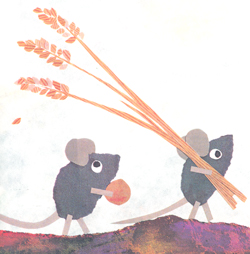 Frederick sits and dreams while the other field mice work. Some would say that's Frederick's "work." Perhaps, but dreamers still need to participate in life.
Frederick sits and dreams while the other field mice work. Some would say that's Frederick's "work." Perhaps, but dreamers still need to participate in life.
As a child I wanted Frederick to get up and help. Couldn't he carry some corn, maybe a little more slowly, but still gather winter food while he was dreaming? Why was he so helpless and dependent? Why was he so callous? Did he deserve all the glory?
What bothers me the most about Frederick is that he never offers his gifts. He never tries to help. Even when all the mice are starving together, it's not Frederick who offers to warm everyone with his stories and colors and poems, the other mice have to ask.
It's OK for poets and other artists to wash the dishes. Dreamers may be different, but no matter what our individual talents we all need to participate in life and help out as part of a family or community.
Children do need stories about kids who are different, books that celebrate unique natures, but when it comes to understanding individuality, I prefer stories like Ferdinand the Bull or Doris Burn's Andrew Henry's Meadow. Sure, the parents' gender roles are a bit dated on this classic, but the emphasis is on finding room for individuality. Andrew Henry shows children have widely different talents and interests and these may be vastly different from their friends or parents.
What are your favorite stories for teaching individuality? What is our place as writers? How do we help dreamers (maybe including ourselves) participate in the community around us?
As parents, we're all English teachers. Our kids learn the sound and rhythm of language from day one, and we enhance it - mostly unknowingly - every day since. I consider part of my motherly job description to be helping kids clean up their language. I'm not talking about swearing or potty talk, here. I'm talking about Like and the like.
School is a breeding ground for sloppy language and "likes." Besides learning life skills such as how to perform impressive armpit farts and burp the alphabet backwards, my son came home at first with a deluge of "likes" in his speech. If you're concerned about how much "like" is creeping into your speech or your family's, here's a guide to banishing it.
The main trouble with "like" is that it's overdone and unspecific. When trying to banish "like" seek out specific words you could use as substitutes. Like is lazy language. What word can you use that will convey a more specific meaning? Make it a game. What word is "like" trying to stand in for? How many times are you saying "like" in a conversation?
Substitute the right word
Like = "thinking" "I was, like, should I go?"
Like = "about" or "approximately" "The cliff was, like, 20 ft. high."
Like = "said" (or "answered" "yelled" etc.) "She was, like, 'Where did everyone go?'"
Like = "for example" "He was scared of spiders, like a really tiny one would still scare him."
Like = "uh - um - er" No need to substitute here. "Like" is just a common filler. Go ahead and say what you mean. Ex: He was, like, so glad to be, like, home.
Like = "similar" "This tastes like grape juice." This is a fine use of "like," but if you're trying to kick the "like" habit, try using an alternate word for now.
Like = "like" "I like you." Say this as much as possible!
How much does "like" creep into your daily speech? Have you ever tried to banish a speech habit? What worked?

